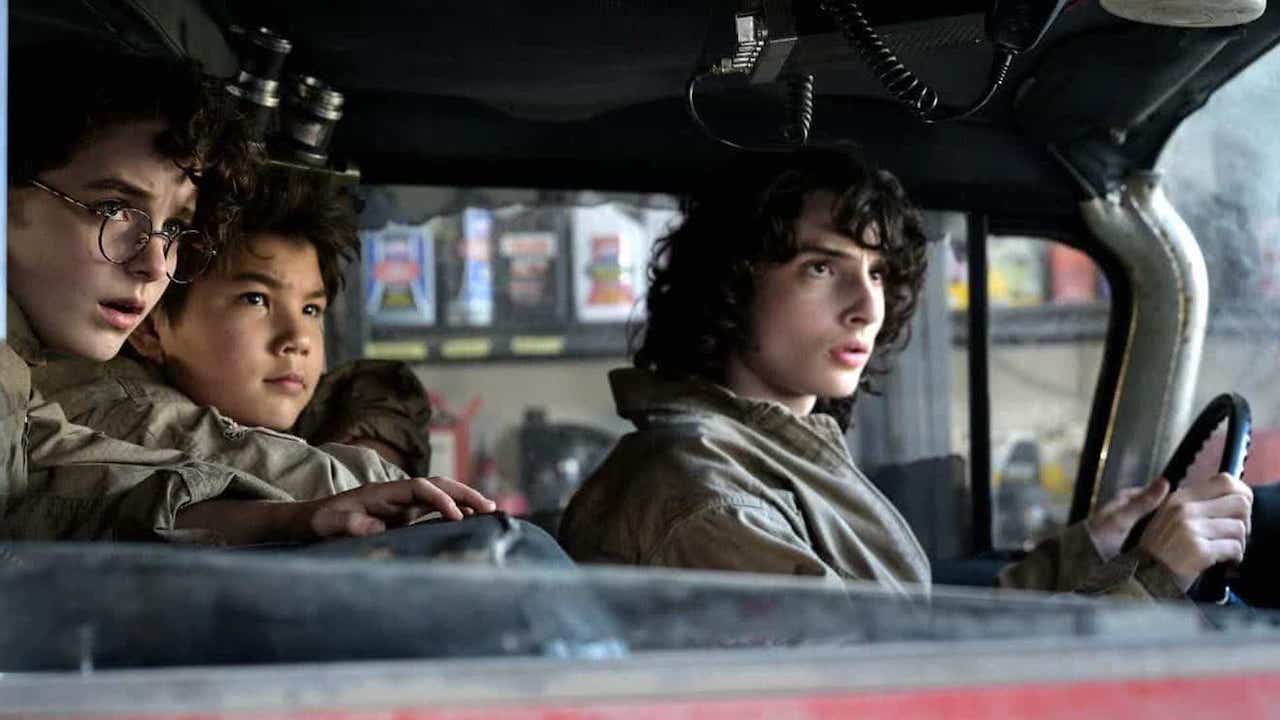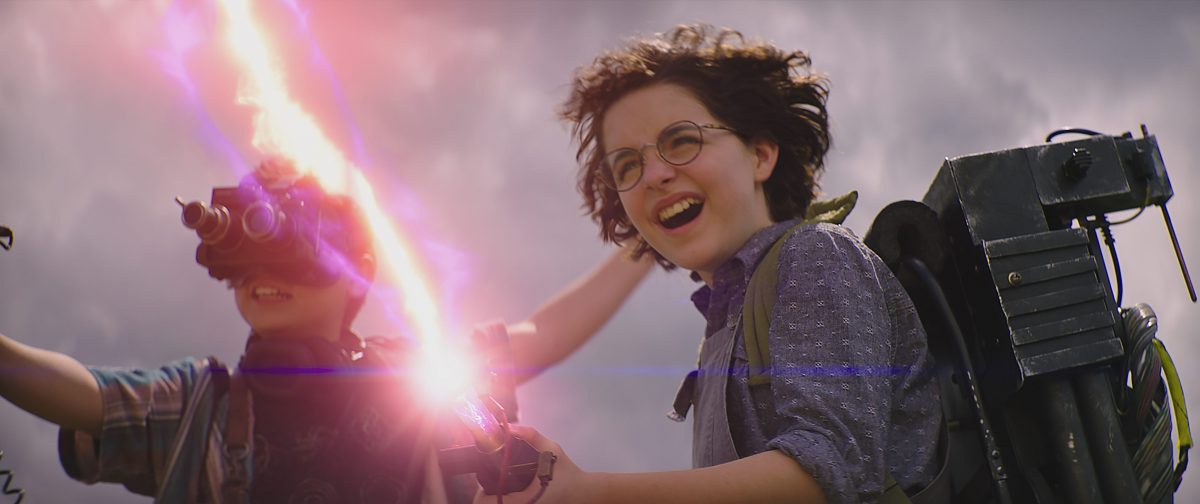Ghostbusters is a prime example of lightning in a bottle. There are some things that are just unique products of the time and place where they were created. They defy formula. Even if you put the same team back together and gave them all the tools and time they needed, they couldn’t replicate their success.
The 1984 Ghostbusters was the product of the fevered mind of Dan Aykroyd. The story of a trio of misfit scientists who travel through time and space to battle supernatural threats was meant as a follow-up to his and John Belushi’s mega-hit The Blues Brothers, with the third part to be played by Eddie Murphy. After Belushi died in 1982, Murphy got his own franchise with Beverly Hills Cop, and Aykroyd retreated into a fallout shelter on Martha’s Vineyard with Harold Ramis to retool the script for Bill Murray and director Ivan Reitman. The Ghostbusters became supernatural entrepreneurs, more pest control than Doctor Who.

Genre-wise, the fantasy action comedy had very little precedent. Reitman got the tone exactly right. It was the post-Star Wars sci-fi boom, so there was an ample budget for special effects. Aykroyd was still at the top of his game, Ramis played Spock-but-funny, Ernie Hudson was the relatable everyman, Sigourney Weaver was sexy as hell, and Murray delivered one of the greatest comedy performances of all time. Propelled by a theme song by former Stevie Wonder sideman Ray Parker Jr. that became an unlikely No. 1 hit, Ghostbusters became the most profitable comedy of all time.
When the principals got back together five years later for Ghostbusters II, it wasn’t the same. The film has its moments, but the elements never gel the way they did the first time out. For years, Aykroyd worked on a third installment, called Hellbent, but Murray saw the writing on the wall and once Ramis died in 2014, that seemed to be the end of it.
But Ghostbusters is all about coming back from the dead, so in 2016, a gender-swapped version was produced with Kristen Wiig, Melissa McCarthy, Leslie Jones, and Kate McKinnon. It, too, had its moments, but lacked that certain magic, and was the subject of a sexist social media backlash. Which might be why Ghostbusters: Afterlife exists.
At least it’s better than The Rise of Skywalker, the other film that was produced as a response to closed-minded people freaking out over changes to their favorite ’80s film franchise. Produced by Ivan Reitman and directed by his son Jason Reitman, Afterlife moves the action from New York City to rural Oklahoma. Callie (Carrie Coon) gets evicted from her New York apartment with her two children, Trevor (Finn Wolfhard), and Phoebe (Mckenna Grace), only to find out that her estranged father has died and left them a spooky old farmhouse in the middle of nowhere. While Callie tries to deal with her late father’s estate, Trevor tries to fit in with the local teens — especially cool girl Lucky (Celeste O’Connor). Phoebe, a budding science geek who is too smart for her own good, is drawn into investigating unexplained earthquake swarms with her summer school teacher Gary (Paul Rudd). This part of the film is a solid kids-solving-mysteries story, like Goonies, but less annoying.
As the story threads come together, Phoebe and Trevor learn that their grandfather, whom they never met, was Egon Spengler, a member of the Ghostbusters who cleaned up the Manhattan ghost flap of 1984. Naturally, the reason he moved to central Oklahoma was ghost-related, and now his grandkids must clean up the mess he left behind or, you know … human sacrifice, dogs and cats living together, mass hysteria!
It’s weird to say, but it’s the familiar elements that derail Afterlife. Just when things get cooking with the new kids, we have to pause to re-introduce the Ectomobile. When the surviving old guys show up to help save the day, it seems perfunctory. Even the glorious moment when Bill Murray is doing Peter Venkman again undercuts the “action” part of “action comedy.”
You can’t catch lightning in a bottle a second time. But I’m willing to give Ghostbusters: Afterlife the benefit of the doubt for two reasons: one, the screenplay mostly works, with the story flowing from the internal logic Aykroyd set up in 1984, even though it’s not nearly as funny. And two, Mckenna Grace gives an absolutely crackerjack performance. Mark my words, she’s a movie star in waiting.
